Hydrogen is a clean alternative to natural gas, when it’s burnt it doesn’t produce carbon dioxide, which is a harmful greenhouse gas. It has the potential to play a significant role in achieving net-zero and decarbonising various sectors.
We’re using our decades of experience to overcome current challenges around storage and help kickstart the hydrogen economy - creating a more stable energy supply, levelling-up communities and helping our customers reach net zero by 2050.
Why Colour Matters
While it has many advantages, there are almost no abundant natural sources of pure hydrogen, which means that it has to be manufactured. This is an energy intensive process and can produce carbon, which is a problem.
But, it's important to understand that not all hydrogen is created equally, and its impact on the environment will vary depending on how the hydrogen is manufactured. Although there are no universally agreed definitions, different colours are used by the energy industry to describe hydrogen, depending on how it’s made, which you can find in the video below.
Green hydrogen is made using renewables and has no emissions making it far better for the environment than Black or Brown hydrogen, which are made using black coal or lignite.
Blue hydrogen is made by converting natural gas in to hydrogen and carbon, but in order to make this process compatible with net zero, we need to be able to capture and store any carbon arising from the manufacturing process, as well as making sure we use renewables to power the process.
What role will hydrogen have?
Decarbonising industries
Different industries will be easier to decarbonise than others due to their production processes. Hydrogen can replace fossil fuels in heavy industries such as steelmaking, petrochemicals and fertilisers.
The iron and steel industry are huge contributors to carbon emissions worldwide. Replacing coal with hydrogen would help to decarbonise these industries , with the only emissions being water vapour created as a by-product.
We’re working with Equinor on a hydrogen production project which will help deliver a reliable source of hydrogen for the Humber region, the UK’s most carbon intensive industrial cluster.
Transportation
While 16% of new UK car registrations in 2023 were battery electric cars, the majority of vehicles and transport options remain heavily reliant on fossil fuels.
Hydrogen fuel cells convert hydrogen into electricity, which can power an electric motor. Fuel cell vehicles can be used in cars, buses and lorries, trains to provide a clean alternative to traditional engines.
Hydrogen can also be used to power trains and ships. Hydrogen trains can cover longer distances than battery-electric trains and refuelling can be quicker compared to recharging batteries. Similarly, some ships are already using ammonia, a derivative of hydrogen, to power engines on-board.
Energy Storage
The shift to renewable energy means there’s a requirement to create back-up generation, that only operates at times of low production.
At the moment this role is played by battery storage and gas fired power stations, but hydrogen can be a key component and provide cost-effective, long duration storage to power our homes and businesses when the wind and the sun aren’t producing sufficiently.
We see a time when excess renewable energy is converted into hydrogen, to be used to generate electricity when that production drops.
We are developing plans to redevelop Rough to become the World’s biggest hydrogen store, to boost the UK’s energy security and support the transition to a Net Zero energy system.
The Government’s plan to decarbonise the grid by 2030, means that significant volumes of hydrogen storage could be needed by the end of the decade.
Heating
Hydrogen can also be used to heat homes. Existing gas boilers can be adapted to burn hydrogen. There is also an option to blend hydrogen with natural gas in existing gas networks.
What we are doing?
Centrica is active across the full energy value chain, exploring the production, transportation and storage of hydrogen. Find out more here.
Hydrogen | What we're doing to help kickstart the hydrogen economy
More stories
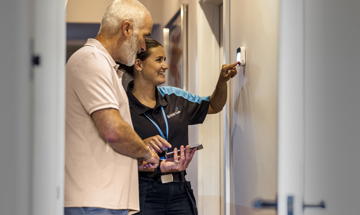
News
Centrica outlines new commitments on net zero and accelerates decarbonisation plan
Net Zero
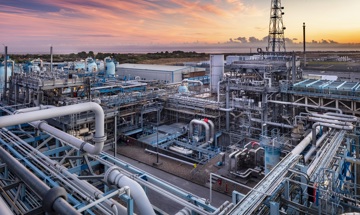
News
Perfect storm reduces UK winter gas storage to ‘concerningly low’ levels
Net Zero

News
Centrica announces extension to the lives of four nuclear power stations
Net Zero
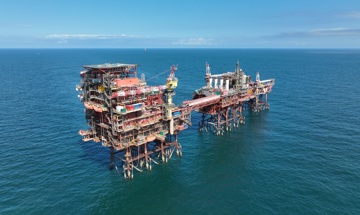
News
Rough responds to manage demand from early winter
Net Zero
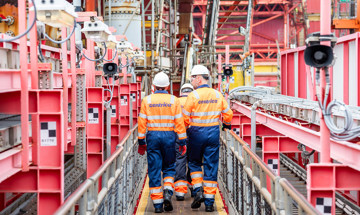
News
Large scale hydrogen storage sites could reduce customer energy costs by £1bn per year
Sustainability
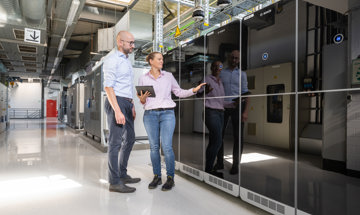
News
Centrica, Bosch and Ceres launch whitepaper around the role of hydrogen in decarbonising the UK
Sustainability

Case Study
We’re on the MAP
Smart Homes

Case Study
Centrica's Market Leading Commitment to Trans Inclusion
Our people

Case Study
Chris O'Shea: The Employment Rights Bill will be good for business.
Our people

Case Study
In conversation with... Victoria Belkhyate
Our people

Case Study
Pivoting Careers: From Netball to the Office
Our People
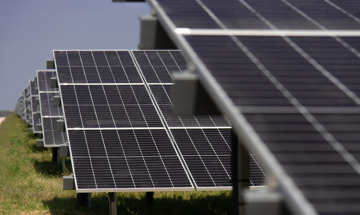
Case Study
Secure, Sustainable and Affordable: 2025 Policy Positions
Sustainability

